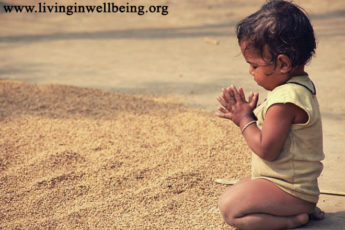
Exceptional Children Defined
Education of exceptional children is a challenging field. The term "Exceptional Children" refers to children whose needs are very different from those of the majority of children in
society. These children deviate from average children to the extent they cannot receive classroom instruction in regular schools. This was the belief prevalent for several years.
Many children are hard of hearing but every such child is not exceptional unless the loss is such as to impair communication skills. Within a particular group of exceptional children,
there are also variations. There are different degrees of hearing loss. Hence, it is appropriate to define exceptional children as those who differ from the average to such a degree in
physical and psychological characteristics that the traditional school programme does not allow all round development and progress for them. They need special education or special
ancillary services to grow according to their ability.
Types of Exceptional Children
The Educable Mentally Retarded
The Trainable Mentally Retarded
The Profound Or Severely Mentally Retarded
The Visually Handicapped
The Hearing Handicapped
The Emotionally Handicapped
The Disabled Learner
The Physically Or Neurologically Handicapped
The Speech And Language Handicapped
The Slow Learner
The Gifted
The Multiple Handicapped
The Socially Handicapped
The Operational Definitions Of Some Of These Categories Are Given Below by Early Childhood Eaducation:
The Educable Mentally Retarded: the educable mentally retarded children have IQs between 60 to 85(earlier 50-75) accompanied by impaired behaviour. These children can
learn minimal academic skills by their late teens with special educational support. They are capable of social and vocational independence with proper education and training. Some of
them need supervision and guidance.
The Trainable Mentally Retarded: trainable mentally retarded children have IQs between 40-60 approximately. By adulthood they have the intelligence of 4 to 8 year old. They
can only learn self-care socialisation and oral communication skills. They need personal attention and care throughout their lives. They can be partially self- supporting after training in
sheltered workshops. They display behaviour problems withdrawal, distractibility, and usual emotional states. Special school setting sometimes is the answer to their training and care.
The Visually Handicapped: visual handicap is defined in terms of visual acuity, field of vision, and visual efficiency. Visual ability is the ability of the eye to see distant objects
clearly using Snellen chart. Individuals who see the letter capital 'E' from 20 feet distance instead of 200 feet are legally blind. There are children who have low vision or residual vision.
These children are sighted and their visual acuity does not exceed 20/70. These children have orientation and mobility problems. Low vision is defined in terms of clarity whereas partial
sightedness is defined in terms of distance from Snellen Chart. Education of these children is based on multi sensory approach, use of plus curriculum, use of Braille, etc.
The Emotional Disturbed: an emotionally disturbed child is one whose reactions to life situations are unrewarding to himself and unacceptable to his peers and other
members of society. The very in degree. They show over a long period of time and to a marked degree certain characteristics which affect their academic performances. These are:
1. Inability to learn, that cannot be explained by intellectual, sensory or health factors
2. Inability to build and maintain satisfactory interpersonal relationship with peers and teachers.
3. Inappropriate behaviour or feelings under normal circumstances.
4. General and pervasive mood of unhappiness or depression.
5. Tendency to develop fear associated with personal and school problems.












